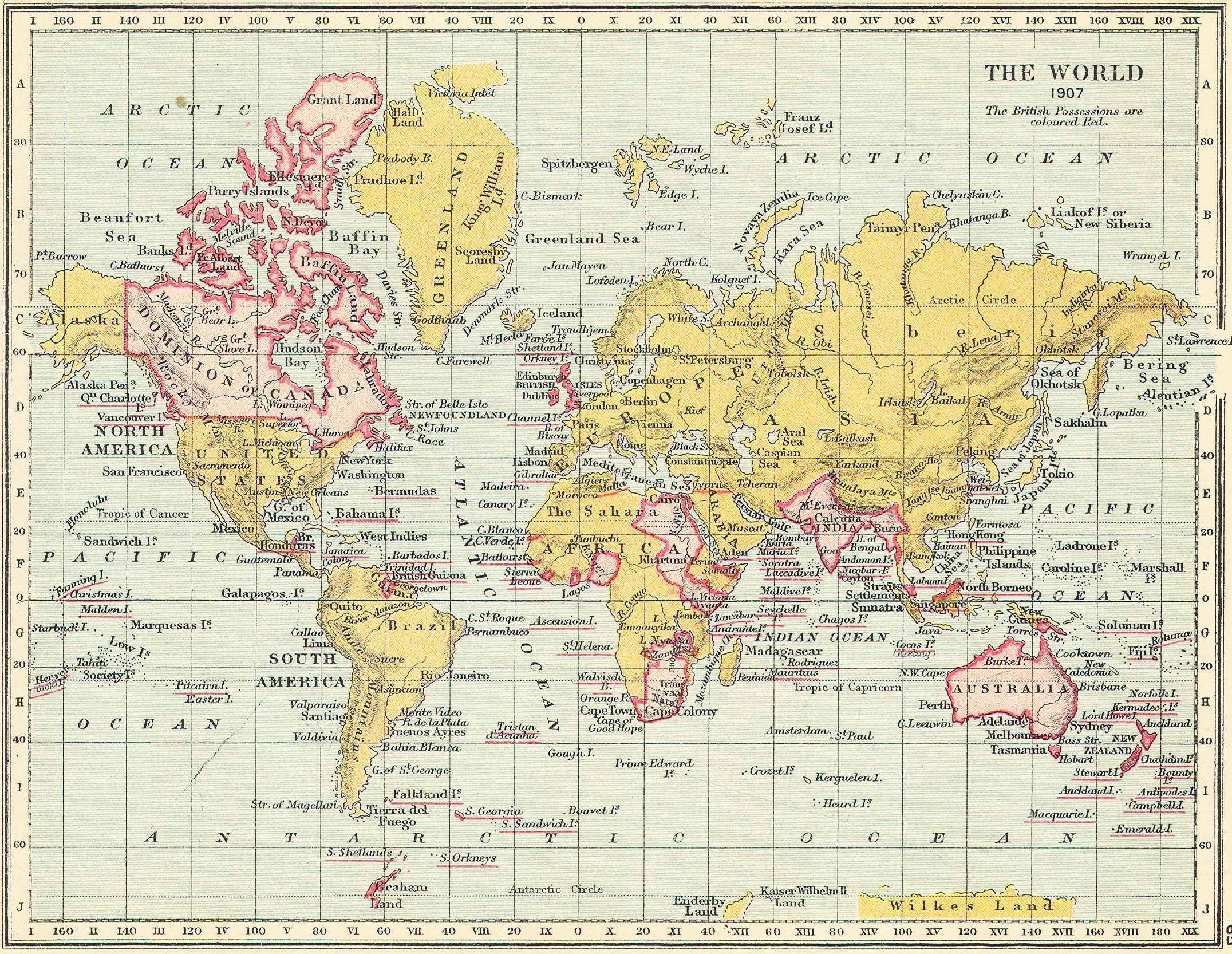Empire, slavery and Cecil Rhodes: history through the eyes of the coloniser

YouGov’s recent poll on the British Empire, colonialism and Cecil Rhodes came out with very terrifying results. Across three of its four questions, the largest share of respondents took a positive view of one of the most shameful chapters of British history.
Issues like these should really be no-brainers. The British Empire relied enormously on slavery and the slave trade for the majority of its history. Britain’s wealth and influence in the world today are built on the bones of every human being separated from their family and community, carried across the Atlantic in conditions normally associated with ethnic cleansing and genocide, and driven to death on the plantations. Torture, rape, mutilation and murder were weapons used to subjugate people into slavery, and in turn to build an economic system that kept the ‘civilised West’ stocked with sugar, tobacco, cotton, coffee, cocoa and so on. The British Empire was absolutely not alone in committing these atrocities, but this alone should be enough to say that this history is nothing to be ‘proud’ of.
A look at the conditions of slaves on plantations emphasises just how horrific this was.
‘By 1750 around 800,000 Africans had been imported into the Caribbean and yet the enslaved population was only 300,000. The sugar islands became a literal ‘graveyard for the slaves’. Children were made to work all plantation crops from as young as five. It was a way of work that left little time for anything else.’
‘No less common and brutal was sexual exploitation. Slave women were always prey to the predatory sexual habits of their masters. Young and old, sisters, daughters and wives – all found themselves subject to sexual assault.’
Apologists for colonialism often point to the abolitionist movement and the end of slavery in the British Empire. A documentary made last year by historian David Olusoga, Britain’s Forgotten Slave Owners, revealed that slave owners were compensated with the biggest government bailout in British history until the recent banking crisis. The documentary tracked where this bailout money went, and much of it went into industrialising Britain. The former slaves themselves didn’t get any compensation, and actually were forced to provide 45 hours of unpaid labour per week for four years after their nominal emancipation. The way in which the abolition of slavery was carried out completely takes away any kind of moral high-ground that can be claimed for the British Empire. To be honest, contemporary ideas of the British Empire having been a ‘progressive’ force have more in common with the mission-to-civilise ideology of colonialism itself than anything else.
Cecil Rhodes was at least a little more honest about what colonialism and his role in it were about. He said,
‘We must find new lands from which we can easily obtain raw materials and at the same time exploit the cheap slave labor that is available from the natives of the colonies. The colonies would also provide a dumping ground for the surplus goods produced in our factories.’
‘Africa is still lying ready for us it is our duty to take it. It is our duty to seize every opportunity of acquiring more territory and we should keep this one idea steadily before our eyes that more territory simply means more of the Anglo-Saxon race more of the best the most human, most honourable race the world possesses.’
Cecil Rhodes is not merely ‘symbolic’ of racism as the YouGov question puts it. His legacy is directly and explicitly racist, and he made no attempt to hide the fact that his project was one of slavery, economic exploitation, expansionism and white supremacy. Statues to commemorate him have no place anywhere. The arguments made to pretend this isn’t as bad as it actually is often resort to some reference to different moral standards from today that applied at the time. This is complete bollocks, and perfectly apparent as such to anyone who has taken the time to read up on opposition and resistance to imperialism and colonialism in Rhodes’ time. Ironically, the moral relativism often applied to Rhodes is very rarely extended to societies who allegedly benefited from the ‘progressive’ administration of the British Empire. While a certain relativism is used to shy away from colonialism’s crimes on the one hand, it is disregarded at the most convenient moment to justify colonialism.
An article in The Independent discusses the British Empire’s lack of coverage in history classrooms. While this is a serious problem, the horrors of British colonialism go far deeper than Cecil Rhodes, are far more extensive than slavery, and are about a lot more than how empire relates to ‘our history’ in Britain. Even a school curriculum which focuses, as Jeremy Corbyn advocates, on the atrocities of the British Empire may only go as far as to teach about those atrocities from the perspective of the perpetrators. School pupils may (hopefully) condemn the British Empire, but this isn’t enough. A major effect of colonialism has been the extent to which history is viewed through the lens of the coloniser. The voices of the colonised are marginalised if not totally ignored and silenced. While Cecil Rhodes’ racist attitudes and his crimes need attention drawn to them, they are relatively easy to find and comment on. What’s harder and even more necessary is intellectual engagement with colonialism that focuses on the people who lived under it and how they resisted it.
Much has been achieved to address this problem through postcolonialism and subaltern studies. However their insights remain largely confined to academic circles. They exist in a whole other world from how the media, classrooms and even many left-wing and anti-racist groups treat colonialism – when they treat colonialism at all.



Leave a Reply